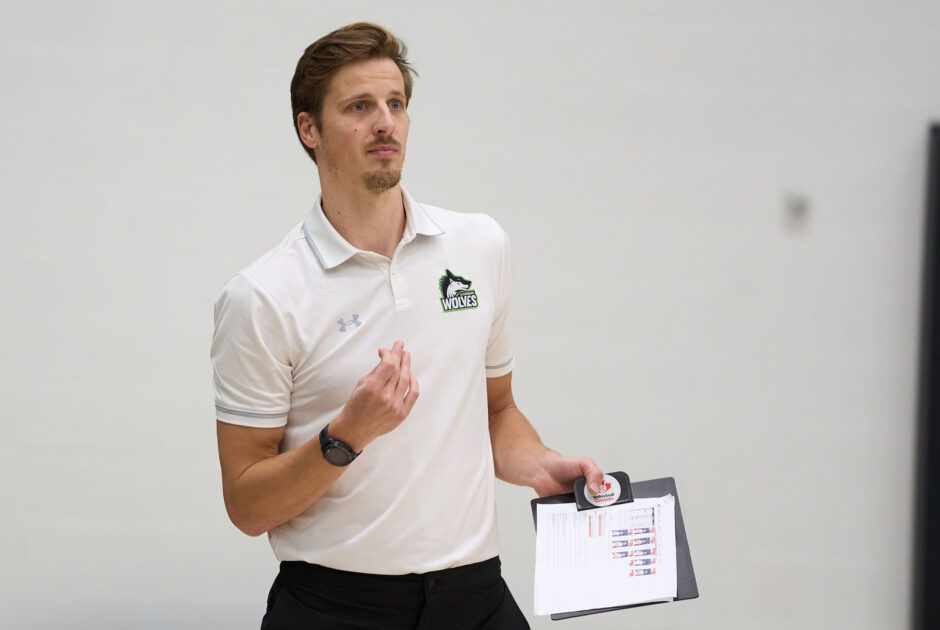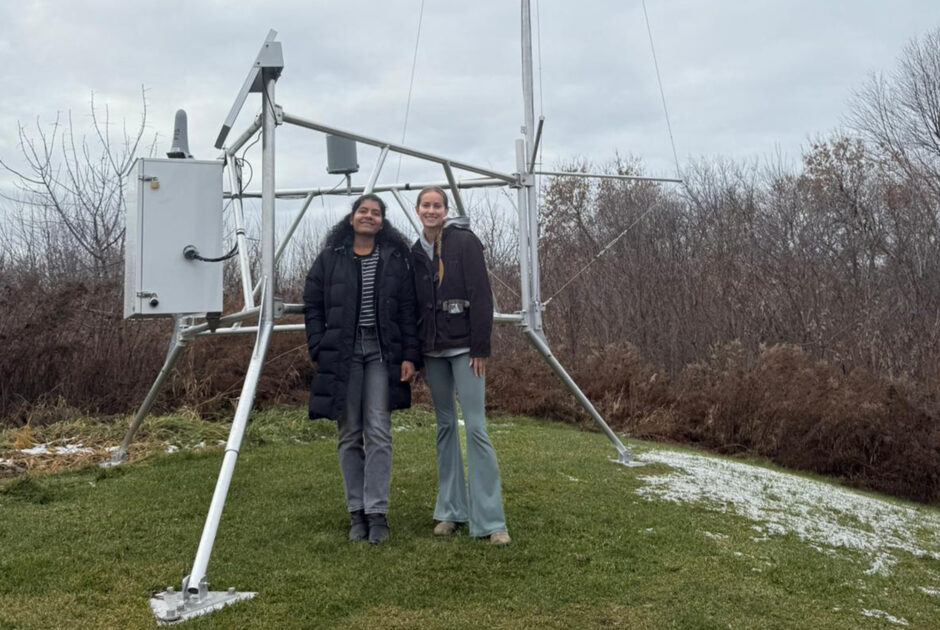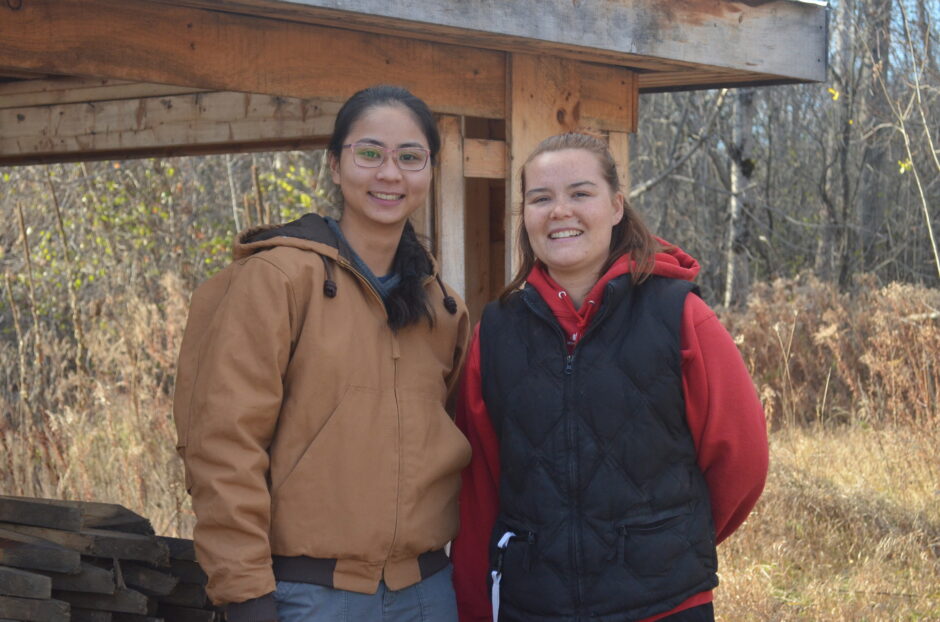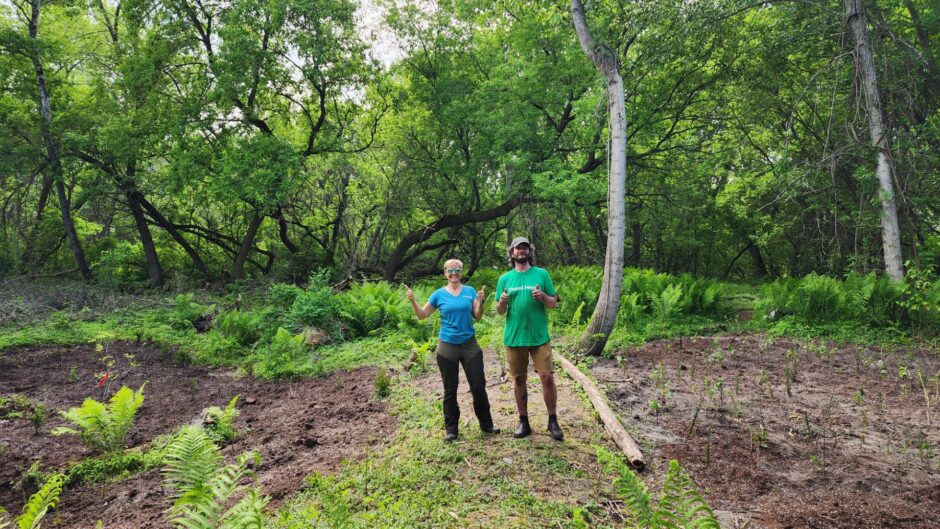First Person: Despairing over climate change will not make it better
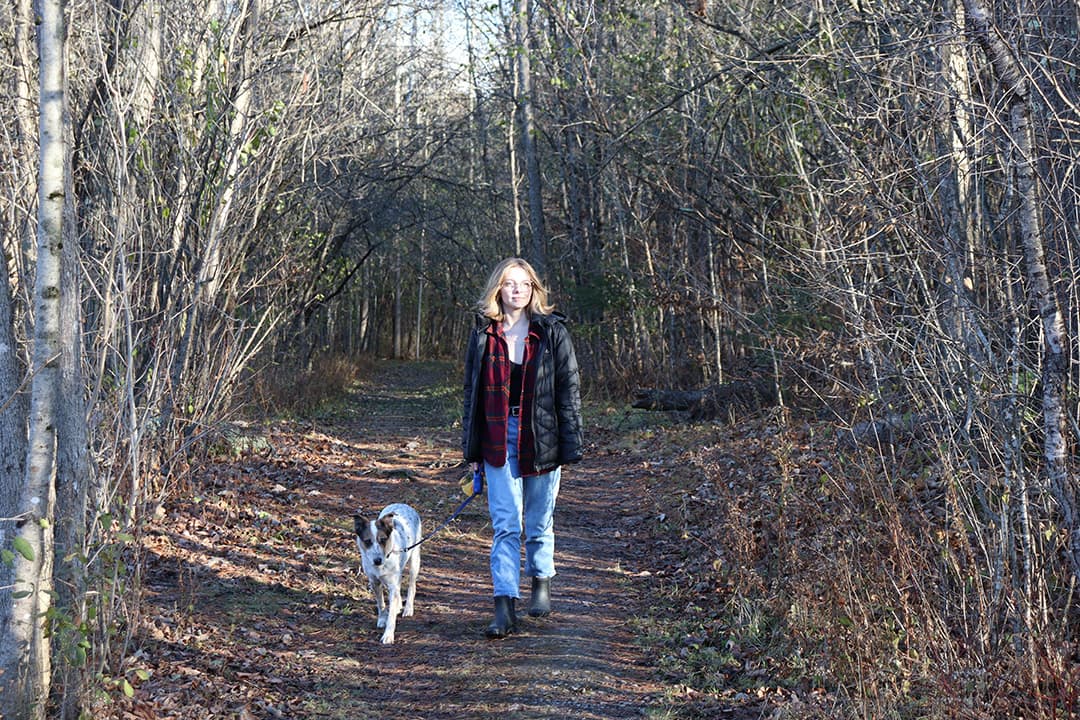
I have walked on the same path for seven years, and in all that time it has never changed. While the seasons shift, the path running through the heart of Gemmill Park near my home in Almonte has remained the same.
It’s a shady forest trail, something out of a fairy-tale. The dirt path is narrow with roots snaking across it and trees shading the ground, which let sunlight trickle through gaps in the leaves. The end of the trail looks like the opening of a tunnel, the land just beyond the tree-line blanketed in crisp sunlight, the entrance to another world altogether.
My dog, Lizzy, loves that trail. I’ve been walking with her on that trail since she was a puppy. When I let her off leash, she runs through the undergrowth, chasing anything that moves until she runs out of sight. I can always find her just around the corner, patiently waiting for my slow human legs to catch up.
That trail has always been our sanctuary, our escape from the harsh world beyond the dense trees.
Until June 2023.
The air hung heavy, thick and nauseating. The weak sun did not penetrate the canopy of leaves. Everything was quiet, unnaturally so. No birds called to one another; no squirrels scuttled between trees. My dog’s whine cut through the silence, fitting the scene. Smoke, dense and toxic, blanketed the trees, leaving a foul taste on my tongue.
All I could do when I visited my path that spring was stand there, heart heavy as I lost the battle with tears. Because what else could I do? What can I do when it seems as if my whole world is on fire?
This year, Canada suffered through its worse forest fire season in history. Over 6,132 fires decimated 16.5 million hectors of land by Sept. 5, 6.6 times the average forest fire consumption in previous years, Natural Resources Canada. For days, the sun was blotted out by staggering amounts of smoke, daily weather warnings urging people to stay indoors.
“Our planet is burning alive,” said Harmon Pope, 23, a student in the community and justice services program. “At a certain point you have to feel the fire.”
Grief is a funny thing. It carries so many forms, as fluid as liquid. I have grieved many things in my 20 years of life, but never something quite like this. To grieve your country, your planet, while it still lives and breathes is a slow, painful torture.
Every day, I heard more news of the devastation. I was shattered when I watched British Columbia, the province of my birth—my home, alight with toxic flames. I was constantly checking the Canadian Wildland Fire Information System, watching the fires creep steadily towards my family’s cottage in northern Mattawa, consumed with anxiety over the likelihood of it being lost to me forever. The countless stories of people ripped from their homes, losing everything, the fear in the air as thick as the smoke. It simply became too much.
I started therapy in July. I was ashamed of it, that this had affected me so much, but I had lost every ounce of hope I had left. In my eyes, this was the beginning of the end. I didn’t believe I would ever reach my eighties, would ever have my own children, would ever live the same way again. To me, we had already lost our fight with climate change, it was already too late. We were all going to die, and I was going to have to watch.
I believed it up until my therapist said one very simple, very powerful phrase:
“I have a lot of hope for your generation; if anyone’s going to save us, it will be you guys.”
And there it was. The seed was planted, tentative roots drilling into my fear, my grief, breaking it gently apart. Because of course we will. Out of everyone I’ve ever spoken to, people in my generation seem to be the most climate conscious, the most passionate about finding solutions to our detrimental situation.
The AC Environmental Society is a group of students passionate about the environment and climate activism at the Ottawa campus. They coordinate events to raise awareness and educate others on sustainability and reducing waste.
Pope, a member of the AC Environmental Society feels the mental strain of the climate crisis with an uncertain future ahead.
“It affects me because I don’t know if the world will have breathable air by the time I’m 60,” said Pope. “At the rate things are going, I don’t know what the world outside my window is going to look like.”
The smallest actions still have weight. We all have an opportunity to be part of the solution, despite our age, our financial situation, or our education. Even if it is simply recycling properly, or using reusable bags, or writing climate stories to bring awareness to these issues. Everything counts, and everything matters.
“I focus on what I can change,” said Pope. “There’s only so much I can do.”
Carbon Removal Canada, an independent policy initiative, is focused on carbon removal solutions and making Canada a global leader in in carbon dioxide removal. They hosted their launch event at the National Art Centre on Wednesday, Nov. 8.
“Change happens when you’re actually doing something better,” said Grégoire Baillargeon, President of BMO financial group, and a panelist at the Carbon Removal Canada launch event.
Reminding myself that there is still a world to fight for, that nature is still alive and thriving across the globe, is challenging even today. Every day, I think about the devastation of the wildfires, the damage they caused and the likelihood that next summer will be even worse.
But I can see past that. I can envision a world where life on Earth is plentiful and bright, where net-zero has been achieved and we work with the environment for the benefit of every living being on this planet.
The fear and the grief will always be present, but it’s time to use it. Without those emotions, change wouldn’t be possible. Fear of the future that surely lies ahead, grief for the world that is rapidly slipping away, drives us to find the light, to make things better. For in their dark shadow, hope sparks.
Don’t despair, our world is not gone.
Have hope. We are the future.





